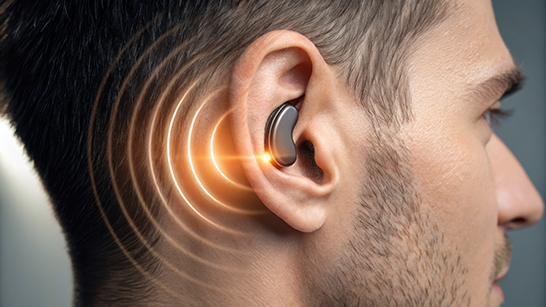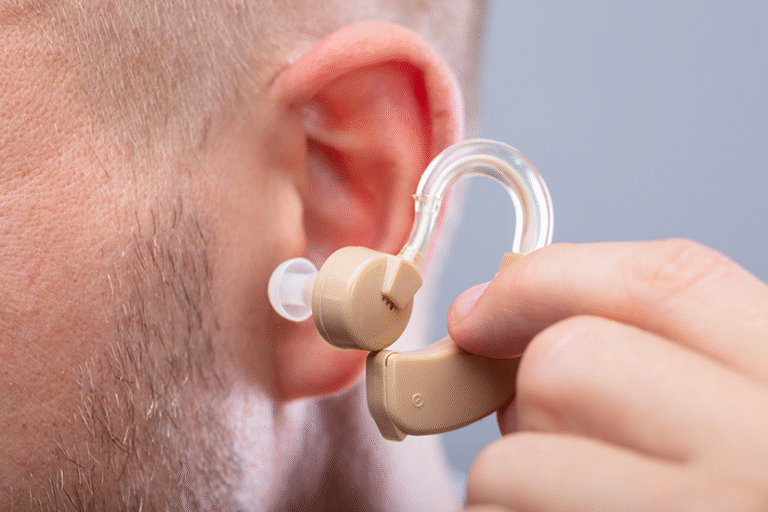Cochlear Implant Assessment: Life-Changing Tech Starts with One Critical Evaluation

A cochlear implant assessment is the first big step for people who have hearing loss. This is a thorough evaluation by a doctor. They do this to see if a cochlear implant is the best choice, especially if your hearing loss is strong sensorineural hearing loss. The doctors and specialists check how well the auditory nerve works. They also find out what type of hearing loss you have. With this, they can give the care that fits your specific needs. When you know about this assessment, you feel ready for cochlear implantation. It can also give you hope for better talking, listening, and a better way of living.
Understanding the Cochlear Implant Assessment
A good checkup is important to decide if someone should get a cochlear implant. The team doing this will look at your degree of hearing loss. This can change how much cochlear implantation can help you, especially if you have deafness. People with a type of hearing loss called sensory neural hearing loss who have a very strong loss may need a cochlear implant instead of using traditional hearing aids.
During the checkup, audiologists and ENT doctors work together. They go over your medical history and will test your hearing. They want to make a plan for your specific needs. This whole process is there to help us get good results for people who could be right for a cochlear implant or cochlear implantation.
Purpose and Importance of the Evaluation
A cochlear implant assessment is a key step for people with different types of hearing loss. This thorough evaluation helps the care team look at your specific needs, so they can see if a cochlear implant will be good for you. It is important to know the type of hearing loss you have and how much you have lost. This helps to make the best plan for your treatment. The assessment does more than find out who should get a cochlear implant. It also gives the care team the information they need to help you improve your speech understanding and auditory skills after the implantation.
Overview of the Assessment Process in Australia
The assessment process for a cochlear implant in Australia has several steps to help figure out what every person needs. First, audiologists do a hearing check to see the type and how much hearing loss there is. Next, there is a medical checkup. During this checkup, the doctors look at the person’s medical history. They do this to spot any middle ear problems or other things that may cause issues. The cochlear implant team, which includes ENT specialists, works together to make things clear. This team helps people with hearing loss find the best option if they want a cochlear implant.
Who Qualifies for Cochlear Implant Assessment
Candidacy for a cochlear implant depends on the type of hearing loss and how severe it is. Adults and kids who have profound sensorineural hearing loss may get a cochlear implant. People who tried traditional hearing aids but do not get the right help might get a cochlear implant with Medicare. A thorough evaluation is done by an audiologist. This review will check your medical history and look into your hearing now. Then, they make sure you have the best plan to fit your specific needs for hearing rehabilitation.
Candidacy Criteria for Adults
Many things help decide if an adult is ready for cochlear implantation. Most people who go for this have a type of hearing loss called severe or profound sensorineural hearing loss. A lot of the time, traditional hearing aids do not give them enough help for good communication. To see if someone should get a cochlear, doctors do a thorough evaluation. They look at things like hearing ability, medical history, and how well the person understands speech. A few other things come into play too. These are the person’s age, individual needs, and how much damage there is in the inner ear.
People who do well with cochlear implantation are the ones who want to work on new listening skills. They use the cochlear device every day in their life. This can give them a good amount of independence and make it easier for them to communicate with others.
Candidacy Criteria for Children
Candidacy for a cochlear implant in children is based on a few main things. The first thing to think about is the degree of hearing loss. A doctor will see if the child has severe or profound sensorineural hearing loss. This kind of hearing loss means the child can’t get enough sound signals, even when using traditional hearing aids. These children do not pick up sounds well at all with hearing aids.
The child’s age and health are also important for cochlear implantation. Most of the time, doctors start with children who are around 12 months old. Before moving forward, the child will usually try hearing amplification for a trial period. This is to check if hearing aids will help at all. The doctors look at how the child is doing with listening skills and speech development during this time. The commitment and support from the family matter too. These steps help make sure cochlear implant intervention is best for each child.
Key Steps in the Assessment Journey
The cochlear implant assessment has several steps to help people get care that is right for them. A doctor will start by looking at your medical history. After this, you will have some tests to check your hearing. These steps help the doctor learn more about your hearing and if a cochlear implant is a good choice for you. Every step is important to find out if a cochlear implant will help in your case.
| Step | Description | Who’s Involved | Purpose (Semantic Relevance) |
| Pre-Evaluation History | Collects medical, audiological, and hearing aid usage history | Audiologist, ENT | Identifies underlying conditions and tailors assessment approach. |
| Medical Review | Reviews past surgeries, ear infections, and potential risk factors | ENT Specialist | Screens for medical contraindications to implantation. |
| Arrival & Orientation | Patient is welcomed and briefed on the day’s assessment process | Care Team | Builds trust and reduces anxiety before tests begin. |
| Hearing Evaluations | Measures ability to hear tones, speech, and environmental sounds | Audiologist | Determines current hearing capacity and implant suitability. |
| Speech Recognition Testing | Assesses how well the patient understands words and sentences | Audiologist | Establishes baseline for post-implant speech outcomes. |
| Imaging (If Needed) | MRI or CT scan evaluates inner ear and cochlear nerve structure | Radiologist, ENT | Detects anatomical factors that may affect implantation. |
| Result Discussion | Professionals explain findings and next steps in a personalized way | Audiologist, ENT | Ensures patient understands results and expectations clearly. |
Each part of the cochlear implant assessment matters when choosing who should have this implant. The plan is made for each person. It gives a clear path to follow. People get good advice and feel safe with their choices. They also have a good place to start for the next steps in their hearing with a cochlear implant.
Essential Tests and Procedures Performed
A full cochlear implant checkup uses several tests. The doctors will check your hearing ability. They will look at the inner ear and see how healthy you are. This helps the team to know if you can get a cochlear implant. With these tests, you get a plan that suits you.
- Hearing and Speech Evaluations
• Check how well you hear and understand words people say.
• Find out how hearing loss affects your day-to-day life.
• These tests are meant for each person’s own hearing history. - Speech Recognition Testing
• See if you get and know spoken words with ease.
• Help choose if you should use traditional hearing aids or have implants. - CT or MRI Imaging
• Look inside the inner ear and see how healthy the cochlear nerve is.
• Find problems or injury that may affect the implant surgery.
• Help choose where the electrode goes during implantation. - Medical Evaluation
• Talk about your health and any risks you may have with surgery.
• Take into account old infections, operations, and body conditions.
• Make sure you are okay for anesthesia and ready for the healing process.
These important checks help keep cochlear implantation safe and make it work well. The team looks at everything, like clinical parts, medical parts, and body structure. When they do this, they get to know what is best for each person. It helps them pick the right way to help with cochlear implantation and each person’s hearing needs.
Healthcare Team Roles in the Assessment
A strong healthcare team is very important when a person goes through a cochlear implant assessment. Working together helps make the process fit the needs of each person. Audiologists do hearing tests and also check speech perception. They find out the degree of hearing loss each patient has. At the same time, ENT doctors, such as otolaryngologists, do medical checks. They look for things like inner ear damage or other issues that could affect hearing. When they team up, they review everything about the person’s hearing, cochlear health, and medical history. This way, every step is taken care of so that each patient gets the care that is right for them.
The Role of Audiologists in Evaluation
Audiologists play a key role in the cochlear implant evaluation process. They check the hearing ability of each person very carefully. They use hearing and speech tests to find out how much hearing loss is there and how that affects the way people talk or listen.
During the evaluation process, audiologists help people at every step. They make sure that you feel comfortable and know what is going on. Audiologists work with the cochlear implant team. This team helps make choices based on each person’s specific needs. Their teamwork helps people get the best results after cochlear implant surgery.
ENT Specialists and Their Responsibilities
Working closely with the cochlear implant team is very important for ENT specialists. They handle the medical part of the evaluation process. ENT doctors check the inside and the way the ear works. They look at what kind and how much hearing loss is there. They also make sure nothing will stop the surgery for the cochlear implant.
These doctors use tests like CT and MRI scans during this process. This helps them see if the person can go ahead with cochlear implantation. Their careful work helps make sure there is a good result after the cochlear implant.
Outcomes of the Cochlear Implant Assessment
The cochlear implant checkup is very useful for people who have hearing loss. It helps find out who can get a cochlear implant. If you meet the right needs, you could get a cochlear implantation. This may help you hear more and make it easier to understand people when they talk. If you do not fit the rules for the cochlear implant, then you may use hearing aids or learn sign language instead. The checkup guides you to the best choice for your hearing. It makes sure everyone gets the care and help that is best for them.
What If You Do Not Meet the Criteria?
If you find that you do not meet the criteria for a cochlear implant because you have severe hearing loss, talk to your healthcare team about other options. You may be able to get help from hearing aids or another device. A few more checks may help decide the best way to help you. This can show what will work best for your hearing loss if a cochlear implant is not right for you.
Next Steps After a Successful Assessment
After you finish a cochlear implant assessment, you talk with your surgical team about the surgery options. The cochlear implant surgical team explains what will happen in the surgery. They also share when the surgery will be and how recovery may feel for you.
The surgical team helps set the day and time for your cochlear implant surgery. They also talk to you about what you need for insurance.
When the surgery is done, you will have a session called mapping. In mapping, the team changes the sound processor settings so you get the best hearing from your cochlear implant.
After your mapping session, you may have some support and therapy. This helps you with your listening skills and speech understanding. The team wants you to feel at ease using your new cochlear implant every day.
Timelines and Process from Assessment to Surgery
The path from your first checkup to cochlear implant surgery has several clear steps. Every step is there for a good reason. These steps help keep you safe, make sure your cochlear implant surgery goes well, and help you get the best hearing you can. Your hearing team will be with you each step of the way. Here is a quick look at each part. It shows what happens at every stage, explains why it is needed, and tells you how long each step of the way may take. The guide is here so patients and the people who help them feel sure about their cochlear implant and feel ready for what is next during cochlear implant surgery.
| Stage | What Happens | Who’s Involved | Estimated Duration | Why It Matters (Topical Relevance) |
| Initial Consultation | Audiologist reviews hearing history, performs basic hearing tests | Audiologist | 1–2 hours | Establishes baseline hearing level and determines candidacy for further evaluation. |
| Detailed Audiological Evaluation | Includes speech recognition, aided and unaided tests | Audiologist | Several hours (1–2 sessions) | Determines potential benefit of cochlear implants vs hearing aids. |
| Medical Evaluation | ENT examines ear anatomy, checks for medical contraindications | ENT Specialist | 1–2 appointments | Confirms medical eligibility and rules out surgical risks. |
| Imaging Tests | CT and/or MRI scans to assess inner ear and auditory nerve anatomy | Radiologist, ENT | Completed within 1 week | Identifies any physical abnormalities that may affect implantation. |
| Team Coordination & Case Review | Multidisciplinary team reviews all assessments, confirms eligibility | Audiologist, ENT, Surgeon | 1–2 weeks | Ensures all data is aligned for safe and effective surgical planning. |
| Surgery Scheduling | After eligibility confirmation, surgery date is set | Surgical Coordinator | Variable (depending on OR slots) | Marks the transition from assessment to surgical preparation. |
| Pre-Surgery Counseling | Education on expectations, recovery, risks, and outcomes | Audiologist, ENT, Nurse | 1–2 sessions | Reduces anxiety, ensures informed consent, and improves post-op satisfaction at the surgical site. |
| Pre-Op Medical Clearance | Routine lab work, EKG, anesthetic risk evaluation | Primary Care Physician, Anesthesiologist | 1–2 weeks | Ensures patient is medically fit for surgery and anesthesia. |
| Support System Planning | Arranging transportation, caregiver availability, and recovery setup | Patient + Family/Caregivers | Parallel with pre-op phase | Crucial for post-op healing, reducing stress, and improving outcomes. |
Knowing how the cochlear implant process goes from the start to the surgery helps people feel more ready and sure about and what will happen. When someone gets good planning with the help of different experts, and gets updates from them on time, the whole journey becomes much easier. A patient can be more calm with all that help. Also, this lets people have a better chance for a good cochlear implant surgery and a better life after getting the cochlear implant.
Cochlear Implant Assessment Differences: Adults vs Children
When doctors look at people for a cochlear implant, they see important differences between children and adults. Children need help with their speech development. Their family should support them as they learn to talk and speak with others. Adults, on the other hand, usually care more about their hearing ability, how they feel, and the way hearing loss changes the way they live each day.
The cochlear implant team checks each person for what they need. The way they work with adults is not the same as the way they work with children. This helps the cochlear implant team give each person the best help. A cochlear implant can make a big change, but it must fit the needs of the one who gets it.
Paediatric Considerations and Family Support
In paediatric cochlear implant checks, it is important to know all the different things each child needs. Family help matters at every step. Parents help from the first test to care after the surgery. They often talk to audiologists and join groups with other parents. This helps set up a space where speech development and learning to listen can happen in a good way.
When families and specialists work together like this, it can help a child feel better about themselves. It also helps cochlear implantation work the best it can. It makes it possible for the team to match the cochlear implant steps to the child’s listening skills and to how the child talks.
When families help and work along with the experts, they support speech development and help children get the best result from cochlear implantation.
Adult-Specific Factors in Evaluation
Age matters when the doctors check if you can get a cochlear implant as an adult. A thorough evaluation will go through your medical history. The team will look at how long you have had hearing loss, the type of hearing loss you have, and other medical problems that might affect the surgery results. When you come in for a cochlear implant evaluation, be ready to talk about what you want to hear and how you live each day. These details help the doctors know what you may get out of cochlear implantation. A good, well-done checkup helps make sure the cochlear implant fits what you need for hearing and goes with your way of living.
How do professionals determine if I am suitable for a cochlear implant?
Healthcare professionals find out if cochlear implants are right for you by doing a few tests. They check hearing loss with hearing tests. They also ask about your medical history and talk with you during your visits. The medical team looks at things like how bad the hearing loss is, how much you need to talk with others, and the state of your health. These steps help them know if a cochlear implant will be a good choice for you. It also helps us try for the best results.
Can children with other medical issues still be assessed for cochlear implants?
Yes, kids who have the cochlear health problems and other health needs can still get checked. A doctor and the rest of the care team will look at them one at a time. They will think about all of the child’s health needs. A team of people work together to make the checkup safe. They want it to work well for each child.
How long does the whole assessment and implantation process take in Australia?
The whole cochlear implant assessment and implantation process in Australia usually takes a few months. At first, people have tests for their cochlear implant, and this part can last several weeks. After that, they have to wait until the cochlear implant surgery is scheduled. How long this wait will be depends on the person, the healthcare team, and what times are free.






